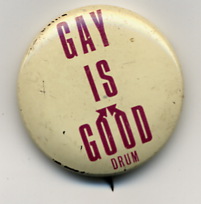Frank Kameny Dies
One of the most influential early activists in the gay rights movement died yesterday. World War II veteran Frank Kameny was 86. In honor of his achievements, the William Way LGBT Community Center has placed its rainbow flag at half staff.

The facilities director at William Way places the flag at half staff today in honor of Frank Kameny (courtesy of Christopher Bartlett)
In many ways, the advancement of gay rights in this country can be attributed to much of the work Kameny had done decades ago, beginning with his criticism of the Pentagon over discharging gay and lesbian service members. It would be a long road – but Kameny – who led demonstrations as early as the 1960s – would live to see the repeal of “Don’t Ask, Don’t Tell” this year, as well as many other landmarks, like the repeal of sodomy laws thanks to Lawrence v. Texas in 2003.
“The LGBT civil rights movement stands on the shoulders of Frank Kameny,” says Malcolm Lazin, executive director of Equality Forum in Philly and producer of Gay Pioneers, a documentary about Kameny and other early activists. “Frank Kameny is the father of the LGBT civil rights movement.”
Kameny – along with the Mattachine Society, which he founded – also helped to end the ban on openly gay federal employees in the early 1970s, and encouraged that American Psychiatric Society to declassify homosexuality as a mental illness.
“The American Psychiatric Association included homosexuality as a mental disorder,” says Lazin. “On December 15, 1973, homosexuality was removed as a mental illness.” Both Kameny and the late Barbara Gittings are credited with making this happen after protesting the annual meeting of the APA using Dr. No, a masked gay psychiatrist to show that pervasive homophobia causes emotional problems, but that being gay does not.
Kameny also coined the slogan, “Gay is Good” in response to the anti-gay rhetoric permeating much of society at the time, and marched here in Philadelphia outside Independence Hall in what many believe to be the first visible gay rights protest in the United States (pre-dating even Stonewall). The demonstration kicked off annual reminders that were attended by activists from both Washington D.C. and New York. Today, there’s a historic marker across from Independence Hall recognizing the achievement for LGBT rights, honoring Kameny, Gittings and other pioneers.
“When the annual reminders took place, gays and lesbians were denied employment by the federal government,” says Lazin. “Frank Kameny was single-handedly responsible through remarkable intensity and perseverance in having the United States Civil Service Commission end the prohibition of gays and lesbians from government service.”
 For all of his work, the former astronomer and Harvard graduate also received an apology from the federal government two years ago for being fired from his job for being gay. He would live to see success from many of his bold, brash campaigns – and be accepted, finally, by an establishment that once rejecting him and others simply for being gay or lesbian.
For all of his work, the former astronomer and Harvard graduate also received an apology from the federal government two years ago for being fired from his job for being gay. He would live to see success from many of his bold, brash campaigns – and be accepted, finally, by an establishment that once rejecting him and others simply for being gay or lesbian.
President Obama honored the gay rights pioneer when he extended benefits to same-sex partners of federal employees. And the protest signs that Kameny once carried outside of the White House are now on display at the Smithsonian Institute.
“He was a stubborn and impatient person, and that was the recipe for his success,” says Dudley Clendinen, author of the book Out for Good, in an interview with the Washington Post. “He was never content with second-class citizenship.”



